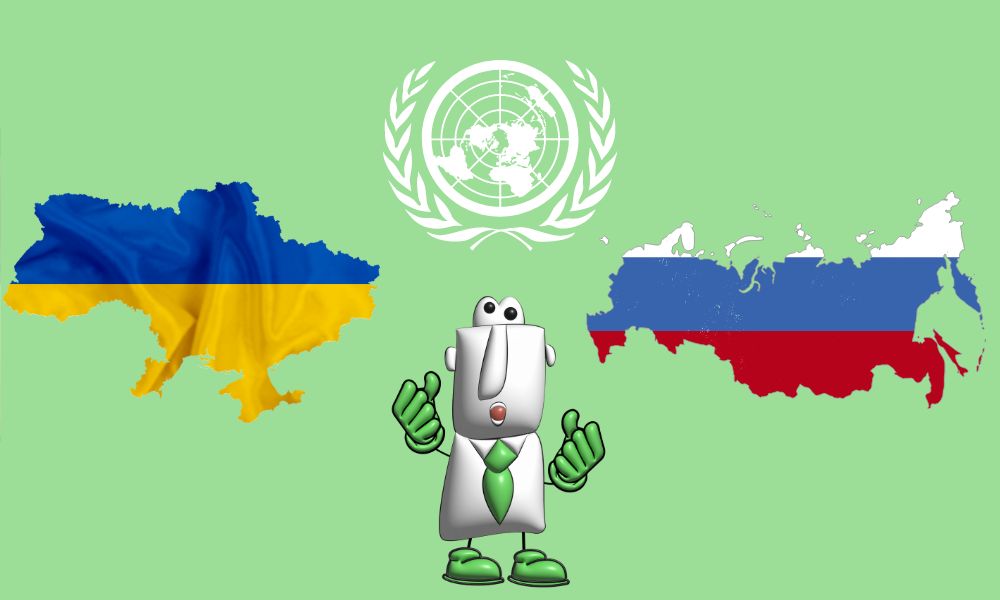This week's United Nations General Assembly gathering will be dominated by a confrontation b...

This week's United Nations General Assembly gathering will be dominated by a confrontation between the United States and its allies and Russia over the destiny of Ukraine, as the global south works to prevent the war from overshadowing the existential risks of starvation and climate change.
With the resumption of face-to-face general discourse, presidents and prime ministers will converge on New York, with many coming directly from London, where diplomacy began in the shadow of the Queen's burial.
Russia is presently in retreat on the battlefield and in the struggle for the hearts and minds of the world community on Ukraine's future.
The general assembly voted 101-7 with 19 abstentions to exclude the Ukrainian president, Volodymyr Zelenskiy, from the restriction that speakers must be in person and enable him to deliver a taped video message.
India, a longtime friend of Moscow that has typically abstained in Ukraine-related votes, supported Zelenskiy. The vote occurred on the same day that India's prime leader, Narendra Modi, publicly reprimanded Vladimir Putin at a regional Asia conference in Uzbekistan, saying him "now is not the time for war."
Putin stated that he was aware of Indian "concerns," mirroring what he had said about China the day before.As mass graves are discovered following the Russian retreat from the Ukrainian village of Izium, the week-long session of the United Nations General Assembly and addresses by world leaders starts.
Wednesday's addresses by Zelenskiy and Joe Biden will likely focus on war crimes, and on Thursday morning, the UN security council will host a ministerial conference, led by the French foreign minister Catherine Colonna, to discuss responsibility for war crimes in Ukraine.
The US representative to the United Nations, Linda Thomas-Greenfield, stated that the Russians "should anticipate that it will not be business as usual" upon their arrival in New York tomorrow.
They will be cut off. They will be denounced by both the Security Council and the General Assembly, she said. This year, there will not be a typical lunch with ministers from the five permanent members of the security council.
Sergei Lavrov, the Russian foreign minister, is scheduled to speak on Saturday, after the majority of ministers have departed, so a walkout as Lavrov takes the podium will have less of an impact.
Despite widespread sympathy at the United Nations general assembly for the plight of Ukraine in the face of the Russian invasion, developing countries have expressed annoyance that the focus on the conflict has obscured discussion and action on parallel food and climate crises that threaten mass displacement and starvation in the global south.
Ukraine has pushed for additional resolutions criticizing Russia in the security council and general assembly, but Kyiv's western supporters have cautioned that the dwindling support for such resolutions might become the narrative.
A European diplomat at the United Nations stated, "There has been an ebb and flow of interest and participation from nations not immediately touched by Ukraine, so we've had to work hard to make it obvious that we're discussing problems that do concern them in their own right."
US Secretary of State Antony Blinken will preside over a meeting on food security on Tuesday, and US officials have signaled that Washington is willing to discuss the reform of United Nations institutions, including the security council.
Western member nations will utilize the meeting on food security to highlight the link between the Russian invasion and global food shortages.
"Linking the two when appropriate is beneficial because it prevents Ukraine from being perceived as a European issue of little consequence," the European official added.
Russia and the West are engaged in a propaganda war in Africa about who is responsible for the grain shortages created by the closure of Ukrainian Black Sea ports.
Lavrov has been travelling Africa, presenting Russia as a victim of an imperialist war fought by the West and emphasizing Russia's role in supporting decolonization efforts.
In a simultaneous effort to enhance its support at the general assembly, the United States has abandoned its neutral stance on reforming UN institutions such as the security council to make them more representative.
The US assistant secretary for international organization affairs, Michele Sison, stated on Friday, in reference to overhauling the council, "We do not believe the United States should maintain an outmoded status quo."
Sison stated, "While we have a good understanding of the hurdles to security council reform, we will make a strong appeal to nations to reach an agreement on genuine, realistic ideas for the road forward."
"For the council to maintain its credibility in the 21st century, it must better represent global realities and embrace regional viewpoints."
As there are competing suggestions for altering the composition of the security council, all of which will be rejected by Russia and China, it seems unclear that the shift in US policy would result in actual improvements.
Its primary objective is to further isolate Moscow and Beijing as status quo defenders.